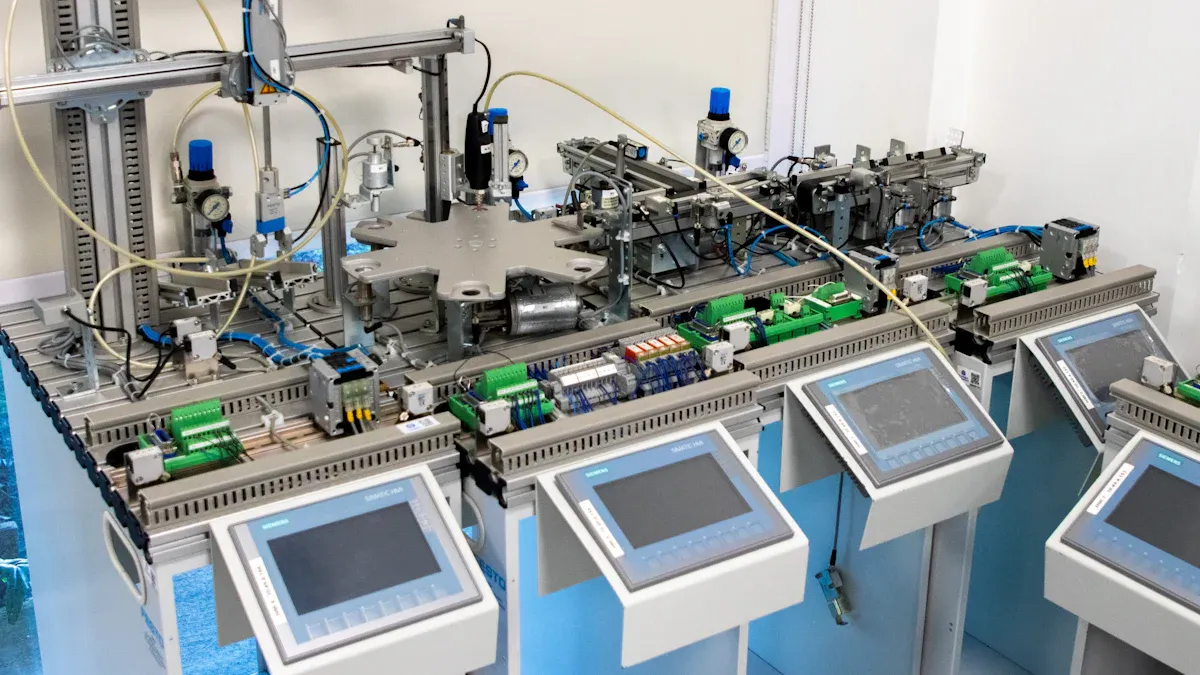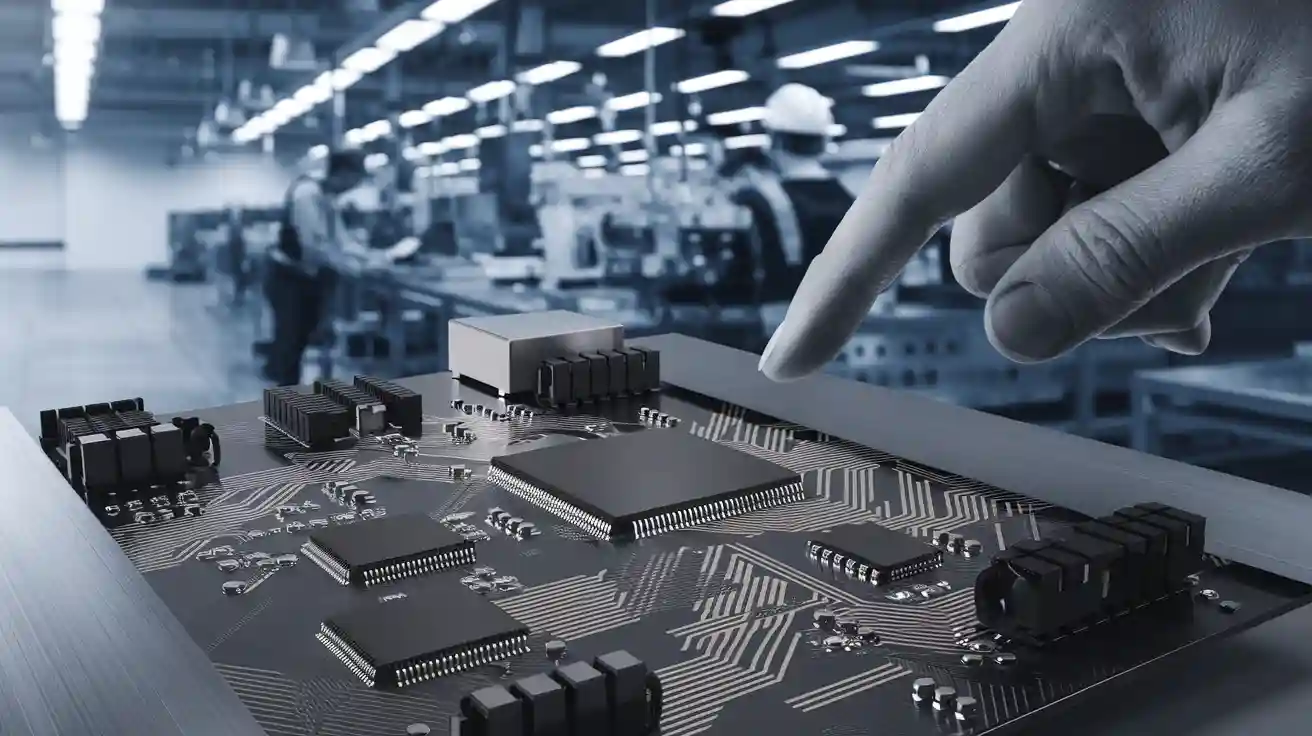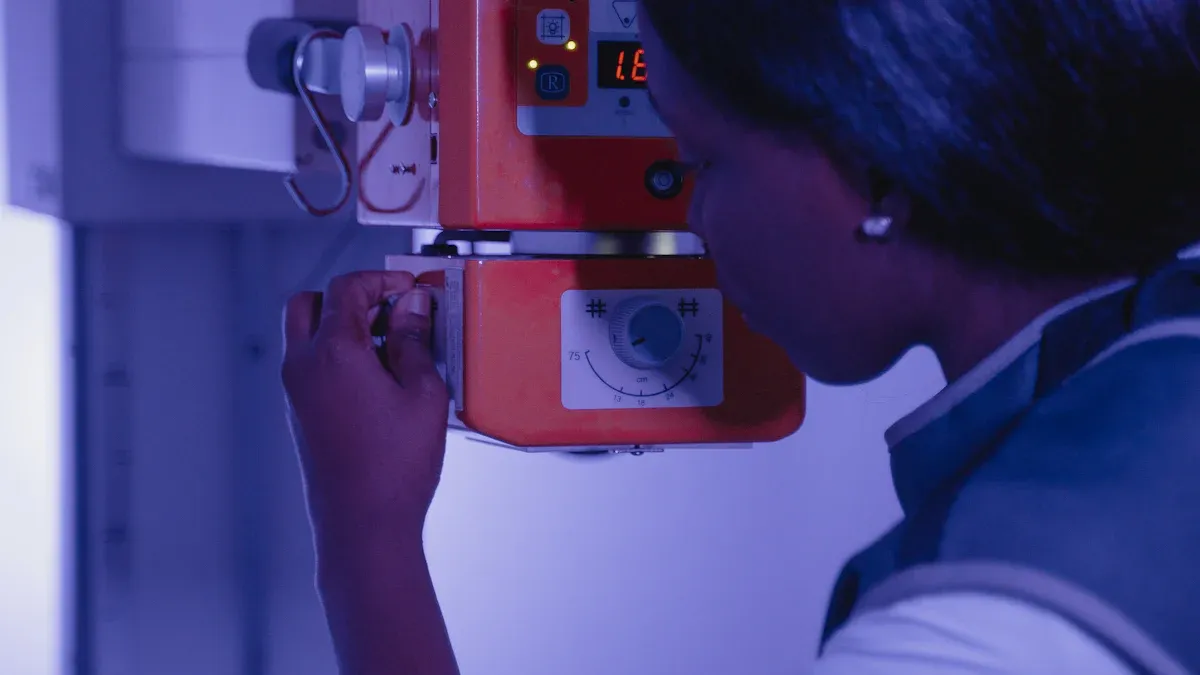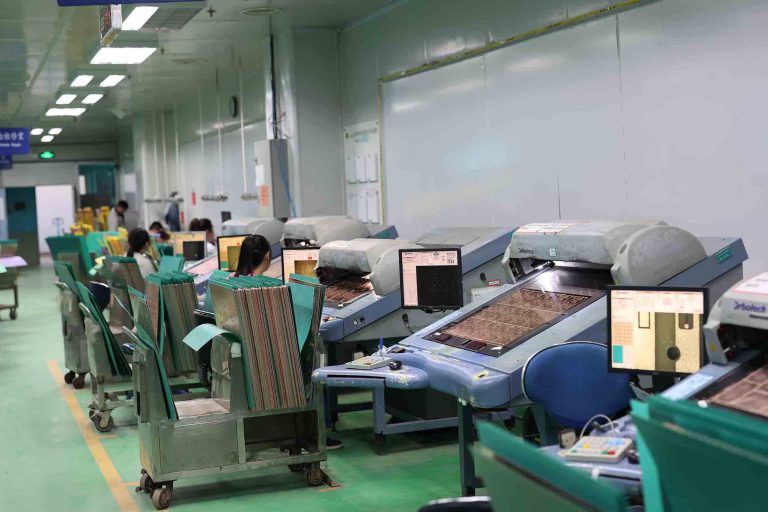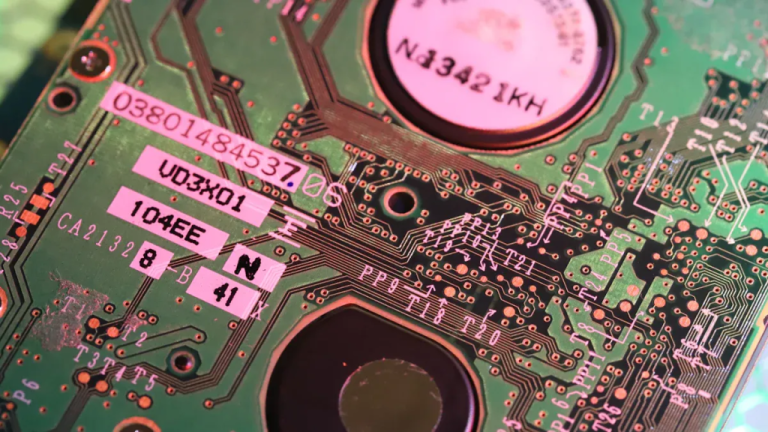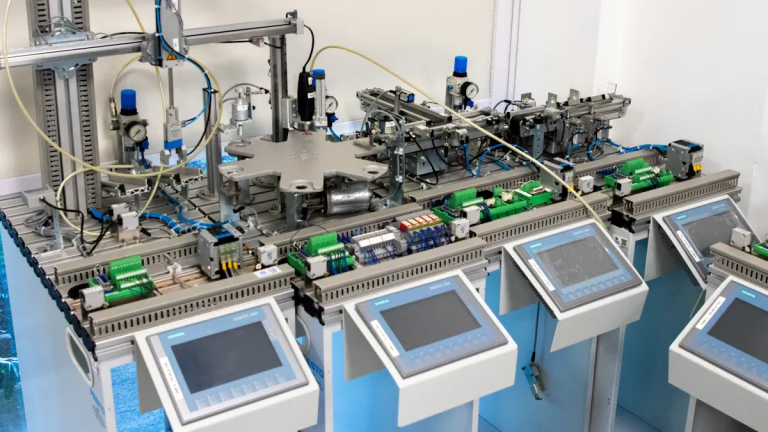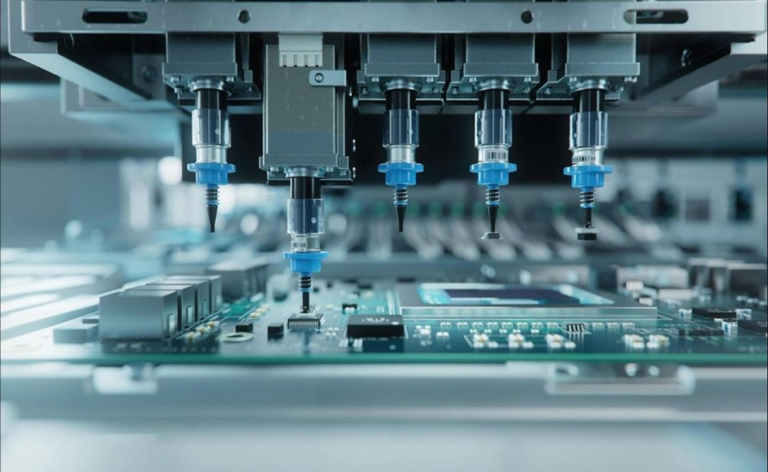Choosing the right PCB manufacturer is critical for your project’s success. A reliable partner ensures high-quality production, advanced technology, and excellent support. The global PCB market, valued at $67.9 billion in 2023, is projected to reach $92.4 billion by 2029, growing at a 5.4% CAGR. This growth reflects the increasing demand for dependable pcb manufactures that meet industry standards and deliver exceptional results.
Key Takeaways
- Pick a PCB maker that values quality and has certifications. Check for certifications like ISO 9001 and IPC-A-600 to ensure they follow industry rules.
- Check if the manufacturer can handle tough designs. Make sure they can scale for small tests or big orders to fit your project.
- Look for clear prices and good customer service. Choose companies that explain costs well and reply quickly to avoid surprises and work smoothly together.
Quality and Certifications in PCB Manufactures
Importance of High-Quality Standards
High-quality standards in PCB manufacturing are essential for ensuring the reliability and performance of your products. When you choose a manufacturer that prioritizes quality, you reduce risks like product recalls and warranty claims, which can harm your brand reputation. Quality inspections also improve manufacturing processes, focusing on efficiency and defect prevention.
A commitment to quality enhances customer satisfaction by delivering reliable PCBs that perform consistently over time. Manufacturers who emphasize quality often use advanced testing methods to verify compliance with industry standards, ensuring long-term device performance and reducing downtime.
| Aspect | Explanation |
|---|---|
| Compliance Verification | Ensures products meet industry standards, regulatory requirements, and client preferences, ensuring safety and reliability. |
| Cost Reduction | Early defect detection minimizes rework costs, scrap, and warranty repairs, lowering production costs. |
| Customer Satisfaction | High-quality PCBs lead to reliable products, enhancing customer satisfaction and reputation. |
| Process Improvement | Data from testing helps improve manufacturing processes, focusing on quality and efficiency. |
| Risk Mitigation | Addresses issues like product recalls and warranty claims, protecting brand reputation. |
| Market Competitiveness | Strict quality inspections enhance competitiveness as customers prioritize quality. |
| Long-term Performance | Reliable PCBs ensure long-term device performance, reducing downtime and repair costs. |
Key Certifications to Look For (e.g., ISO, IPC, RoHS)
Certifications play a critical role in verifying the quality and compliance of PCB manufactures. Look for manufacturers with certifications like IPC-A-600, ISO 9001, and RoHS. These certifications ensure adherence to industry standards and environmental regulations, giving you confidence in the safety and reliability of the products.
For example, IPC-A-600 guarantees the acceptability of printed boards through documented inspections, while ISO 9001 improves audit efficiency by 25% through a robust quality management system. RoHS compliance limits hazardous materials, ensuring your products meet environmental safety standards.
| Certification | Impact on PCB Quality Standards |
|---|---|
| IPC-A-600 | Ensures acceptability of printed boards, requiring documented proof of inspections. |
| ISO 9001 | Quality management system that mandates compliance documentation, improving audit efficiency by 25%. |
| RoHS | Limits hazardous materials in electronics, with compliance verification necessary to avoid product bans. |
| REACH | Requires disclosure of chemical substances, impacting labeling and compliance. |
| WEEE | Drives demand for recycling-friendly labels, with non-compliance resulting in significant fines. |
Compliance with Industry Regulations
Adherence to industry regulations ensures that PCB manufactures meet global standards for safety, quality, and environmental sustainability. Manufacturers must comply with frameworks like NIST 800-171 for safeguarding sensitive data, ISO 13485 for medical devices, and UL standards for flammability criteria.
Compliance opens access to international markets and enhances brand reputation by demonstrating reliability and commitment to sustainability. It also improves product safety and reduces risks associated with non-compliance, such as fines or product bans.
- Improved product safety and reliability through adherence to safety standards.
- Wider market access by meeting international requirements.
- Enhanced brand reputation due to perceived reliability and commitment to sustainability.
Manufacturing Capabilities of PCB Manufactures
Advanced Technology and Equipment
The right PCB manufacturer invests in cutting-edge technology and equipment to ensure precision and efficiency. Advanced tools like Automated Optical Inspection (AOI) systems use high-resolution cameras to detect defects early, guaranteeing consistent quality. Flying Probe Testing offers quick electrical verification without requiring custom fixtures, enhancing flexibility and accuracy.
Modern Surface Mount Technology (SMT) equipment enables high-speed placement of small components, improving component density and reliability. Drilling and routing machines ensure precise creation of vias and mounting holes, which are critical for multilayer boards. Lamination and etching equipment further enhance the structural integrity and functionality of PCBs.
| Technology/Equipment | Impact on Production Accuracy |
|---|---|
| Automated Optical Inspection (AOI) | Detects defects early, ensuring consistent quality. |
| Flying Probe Testing | Enhances flexibility and accuracy in electrical verification. |
| Surface Mount Technology (SMT) Equipment | Improves component density and reliability through precise placement. |
| Drilling and Routing Machines | Ensures precise creation of vias and mounting holes for multilayer boards. |
| Lamination Equipment | Bonds layers with controlled heat and pressure, ensuring high-integrity construction. |
| Etching Equipment | Removes copper with precision, critical for final PCB functionality. |
Expertise in Handling Complex PCB Designs
PCB manufactures with expertise in complex designs can handle intricate layouts, high layer counts, and advanced materials. Manufacturers capable of producing up to 64-layer boards demonstrate their ability to meet demanding requirements. They also manage tight tolerances, such as ±0.1mm for dimensions and ±0.08mm for finished hole sizes, ensuring precision.
This expertise is essential for industries like aerospace, medical devices, and telecommunications, where reliability and performance are non-negotiable. You should prioritize manufacturers with a proven track record of delivering complex designs without compromising quality.
Scalability for Prototyping and Mass Production
Scalability is a critical factor when selecting a PCB manufacturer. A reliable partner should support both prototyping and mass production, allowing you to transition seamlessly from concept to market. Look for manufacturers offering flexible production volumes and quick turnaround times for prototypes.
For mass production, the ability to handle large-scale orders without delays is crucial. Manufacturers with advanced equipment and streamlined processes can meet high-volume demands while maintaining consistent quality. This scalability ensures your project remains on schedule, whether you need a small batch or a large production run.
Delivery Timelines and Flexibility
Importance of On-Time Delivery
Timely delivery is a cornerstone of successful PCB manufacturing. When your project depends on precise schedules, delays can disrupt production timelines and increase costs. Reliable manufacturers prioritize on-time delivery to ensure your operations run smoothly.
Studies show that companies improving their On-Time In-Full (OTIF) scores often achieve better supply chain efficiency. For instance:
| Company | Improvement in OTIF Score | Key Actions Taken |
|---|---|---|
| Smithfield | 87% to 94% | Improved visibility across the supply chain by unifying systems into a single platform. |
| Kraft Heinz | 5% increase | Prioritized larger carriers and leveraged visibility tools to enhance reliability and relationships. |
Choosing a manufacturer with a proven track record of timely delivery ensures your project stays on schedule and avoids unnecessary setbacks.
Evaluating Lead Times and Flexibility
Understanding lead times and flexibility is essential when selecting a PCB manufacturer. Efficient production planning and advanced forecasting tools can significantly reduce lead times and adapt to changing demands.
| Evidence | Description |
|---|---|
| Efficient Production Planning | Reduces lead times through optimized scheduling and resource allocation. |
| Advanced Forecasting Tools | Enhances flexibility by predicting demand and adjusting production schedules accordingly. |
| Statistical Analysis in Testing | Identifies trends and optimizes processes, improving production efficiency and reducing delays. |
Evaluate how well a manufacturer adapts to unexpected changes, such as material shortages or design modifications. This adaptability ensures your project progresses without interruptions.
Handling Urgent or Custom Orders
Urgent or custom PCB orders require a manufacturer with streamlined processes and clear communication. To expedite these orders, you must provide accurate data, including schematics and a bill of materials (BOM) with manufacturer part numbers. Ensure all components are available and not obsolete to avoid delays.
Manufacturers may charge additional fees for incomplete or non-standard data formats. By collaborating closely with your manufacturer and providing precise information, you can minimize turnaround times and ensure your custom requirements are met efficiently.
Pricing and Transparency in PCB Manufactures
Balancing Cost-Effectiveness with Quality
Striking the right balance between cost and quality is essential when selecting a PCB manufacturer. While affordability is important, compromising on quality can lead to unreliable products and increased long-term costs. You should consider factors like material selection and design optimization to achieve cost-effectiveness without sacrificing performance.
- FR-4 is a popular material choice due to its affordability and reliable performance.
- High-performance materials, though more expensive, offer superior properties for specialized applications.
- Strategic design and component selection can reduce costs while maintaining quality.
By working with a manufacturer that understands these trade-offs, you can ensure your PCBs meet both budgetary and performance requirements.
Importance of Transparent Pricing and No Hidden Fees
Transparent pricing is a hallmark of trustworthy PCB manufactures. A clear cost breakdown helps you understand where your money is going and minimizes the risk of unexpected expenses. Manufacturers offering transparent pricing often provide higher-quality products and better customer satisfaction.
| Aspect | Transparent Pricing | Low-Cost Services |
|---|---|---|
| Cost Breakdown | Clear and detailed | Often hidden fees |
| Risk of Unexpected Costs | Lower risk due to transparency | Higher risk due to potential hidden fees |
| Product Reliability | Enhanced due to quality assurance | Potentially compromised by low-quality components |
| Customer Satisfaction | Higher due to no surprises | Lower due to unexpected charges |
Extremely low prices can sometimes indicate subpar components, inadequate quality control, or limited technological capabilities. Always prioritize transparency to avoid these pitfalls.
Comparing Quotes from Multiple Manufacturers
Comparing quotes from different manufacturers is a critical step in finding the best value for your project. Reliable manufacturers provide detailed cost breakdowns, allowing you to evaluate what each quote includes.
- Look for competitive pricing that doesn’t compromise quality.
- Ensure quotes are transparent, with no hidden fees.
- Ask about volume pricing for bulk orders to reduce per-unit costs.
By analyzing quotes based on specific criteria, you can make informed decisions that optimize costs while maintaining quality and precision. This approach ensures you select a manufacturer that aligns with your project’s needs and budget.
Customer Support and Communication
Responsiveness and Availability
Effective customer support begins with responsiveness and availability. You need a PCB manufacturer that prioritizes agility in communication and decision-making. Quick responses to inquiries or issues ensure your project stays on track, even when unexpected challenges arise.
Manufacturers that invest in technology and diversify their supply sources can better manage market volatility. This approach ensures a steady supply of essential components, reducing delays. Agile production planning further enhances flexibility and resilience, allowing manufacturers to adapt to your changing needs.
- Agility in communication improves decision-making and project outcomes.
- Diversified supply sources ensure consistent component availability.
- Robust risk management strategies lead to sustainable operations.
Clear Communication Throughout the Process
Clear communication is vital for maintaining production timelines and ensuring quality. When roles and responsibilities are well-defined, collaboration becomes more effective, and projects are completed on time. Tools like a RACI matrix clarify accountability, while regular status updates foster open communication and problem-solving.
Timely feedback is another critical factor. Early feedback on PCB layouts allows for smoother design adjustments, improving overall quality. Delayed feedback, on the other hand, can disrupt manufacturing schedules. Conducting a PCB design review before production begins helps identify and resolve potential issues, accelerating the development process.
- Clearly defined roles enhance collaboration and accountability.
- Regular updates promote knowledge-sharing and problem-solving.
- Early feedback improves design quality and prevents delays.
Post-Sales Support and Issue Resolution
Post-sales support is a cornerstone of long-term customer satisfaction. A reliable manufacturer offers dedicated technical support teams to troubleshoot issues quickly, minimizing downtime. Firmware and software updates for programmable components extend product life and improve performance. Strong warranty policies reduce replacement costs, ensuring peace of mind.
| Key Considerations | Benefits |
|---|---|
| Dedicated technical support teams | Reduced downtime through fast issue resolution. |
| Firmware and software updates | Extended product life and enhanced performance. |
| Warranty policies for components | Lower maintenance expenses and replacement costs. |
Comprehensive after-sales service demonstrates a manufacturer’s commitment to delivering value beyond the initial sale. Addressing complaints, offering technical guidance, and resolving product-related issues foster loyalty and strengthen long-term relationships.
A manufacturer that excels in post-sales support ensures your investment remains valuable over time.
Selecting the right PCB manufacturer involves evaluating several critical factors. These include quality, certifications, manufacturing capabilities, delivery timelines, pricing, and customer support. Each plays a vital role in ensuring your project’s success.
| Factor | Description | Importance |
|---|---|---|
| Quality Control | Processes like inspections and testing ensure reliable PCB performance. | Essential for product reliability and market success. |
| Customer Service | Support and communication throughout the process. | Crucial for smooth collaboration and issue resolution. |
Aligning the manufacturer’s strengths with your project needs reduces production risks. For example:
- Early collaboration ensures adherence to design for manufacturing (DFM) guidelines.
- DFM practices optimize material use and scalability, streamlining high-volume production.
Industry certifications, such as ISO 9001, reflect a manufacturer’s commitment to quality. Proactive quality control, like statistical process control (SPC), prevents defects and ensures consistency.
Thorough research and prioritizing reliability and transparency will help you choose a manufacturer that meets your specific requirements.
FAQ
What is the most important factor when choosing a PCB manufacturer?
Quality is the most critical factor. Ensure the manufacturer meets industry standards, holds certifications, and delivers reliable PCBs that align with your project requirements.
How can you verify a manufacturer’s certifications?
Request documentation for certifications like ISO 9001 or IPC-A-600. Cross-check their validity through official certification bodies or industry directories for added assurance.
Can you negotiate pricing with PCB manufacturers?
Yes, many manufacturers offer discounts for bulk orders or long-term partnerships. Always compare quotes and discuss pricing options to find the best value.


